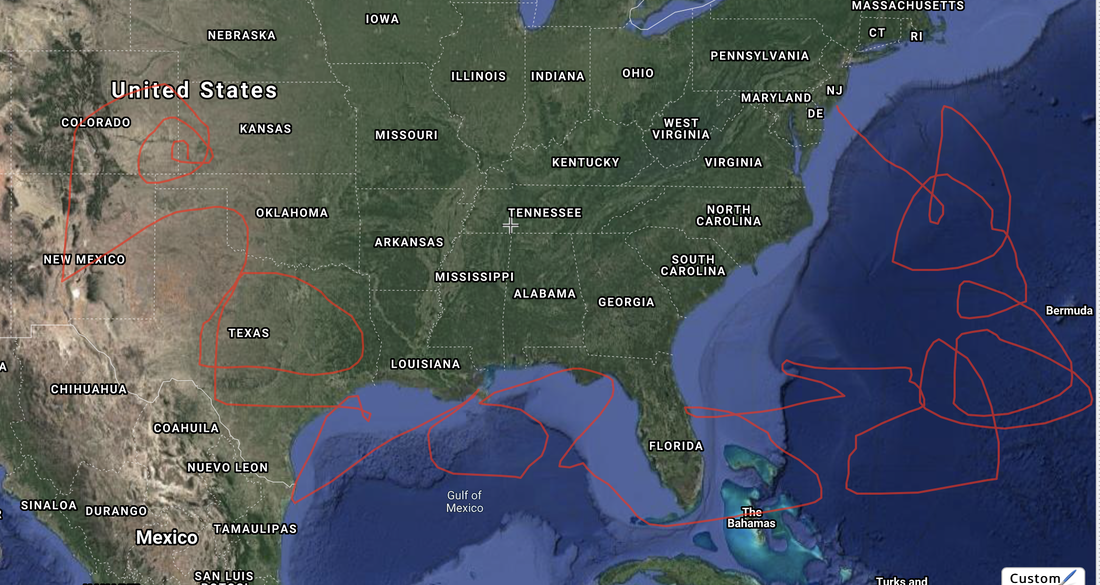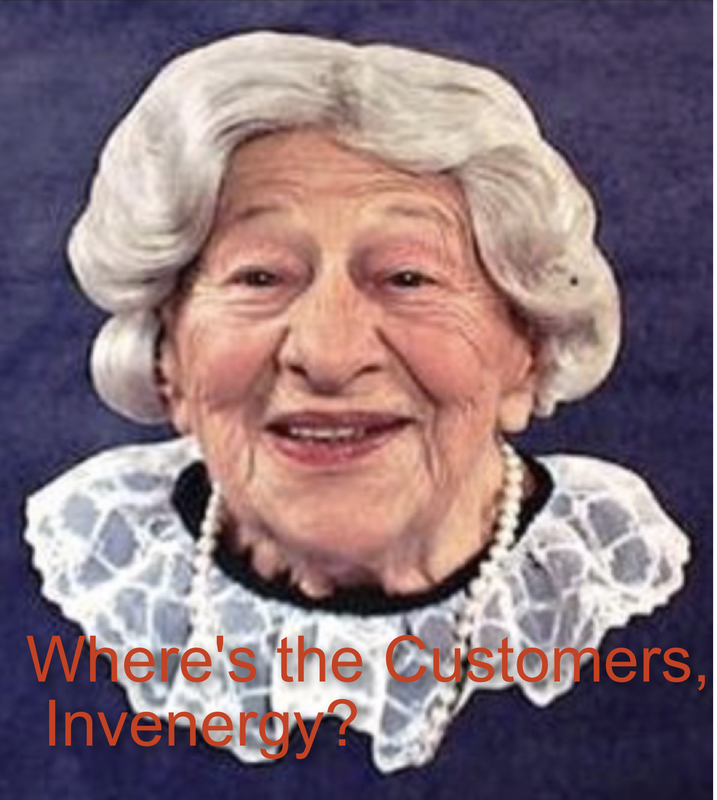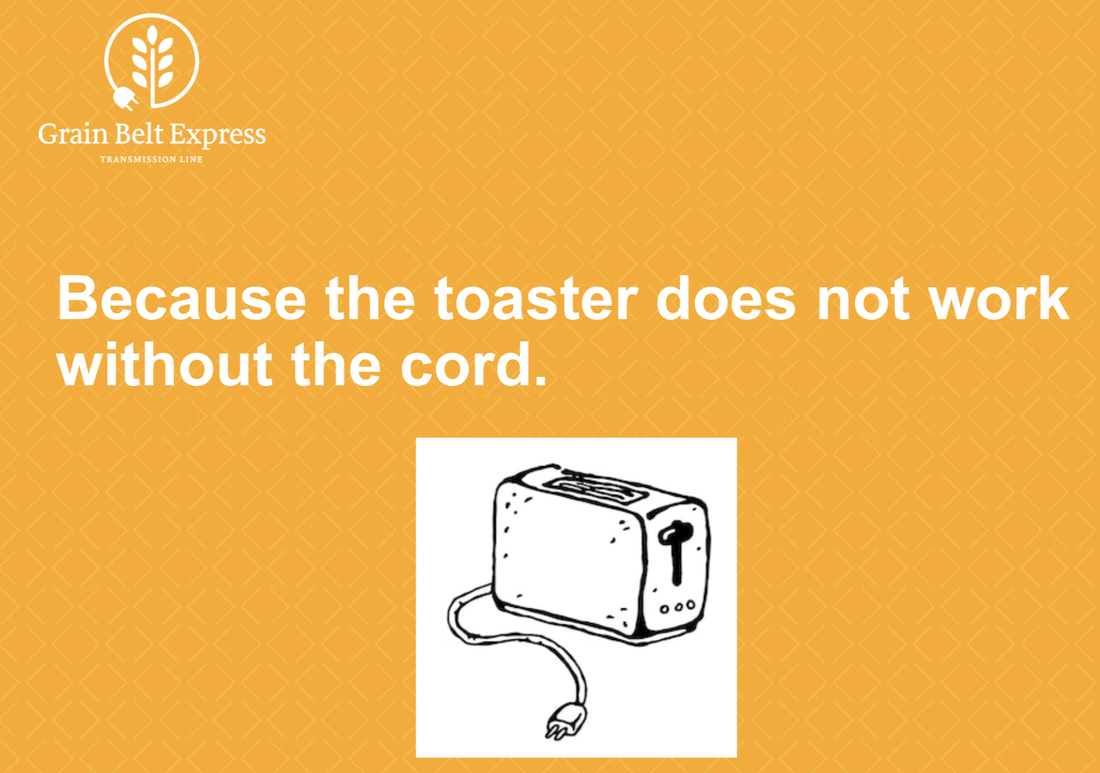We're on our way!
Lots of stuff got brought up in the hearing yesterday, and two very different news articles were posted. One was good, and one was biased opinion cloaked as news. Do we call that "fake news" these days? At any rate, it gives me an opportunity to clear up some misinformation that got spread yesterday.
The bad article can be found here. Does the St. Louis Post-Dispatch have a bias in favor of the project? I'd guess they do, after reading the article, or maybe the reporter himself is just uneducated or too lazy to get information first hand and relied too much on opinion instead of fact?
The article starts out with an apparent misunderstanding of the three branches of government. This is something I think I learned in elementary school, and perhaps a refresher course is in order.
Although judges and state regulators have given it the go-ahead, Missouri lawmakers are still trying to unplug a controversial electric transmission line.
And now let's skip to the reported malarkey spewed by Invenergy at yesterday's hearing.
A spokeswoman for Chicago-based Invenergy, which is spearheading the project, said the power line project will have a significant economic impact in the state.
“This project will create thousands of jobs here in Missouri,” said Nicole Luckey.
In addition, she said the company is prepared to pay more for land than its fair market value.
“We are committed to compensating landowners fairly,” Luckey said.
Invenergy says its structures will take up less than 10 acres of land throughout Missouri, not including land underneath transmission wires.
And let's examine that statement about paying more than fair market value. Who determines "fair market value" if a taking isn't challenged in the courts? Invenergy does! Invenergy's land agent subcontractor works to get "market study" data from past land sales in each county. There could be some picking and choosing going on there that skews the numbers. Then an "average" market value for land in that county is developed. Once that figure is arrived at, individual property characteristics can be applied to either raise or lower it to arrive at a "fair" cost per acre.
We are committed to compensating landowners fairly? Is this the landowner's idea of fair, or is it Invenergy's idea of fair? Of course, it's Invenergy's, because they currently hold the power of eminent domain to take a property, even if the owner does not agree the compensation is fair. There's nothing fair about this!
And, which is it, Invenergy? Fair market value... or more than fair market value? How much more? Those statements, taken together, make no sense, which leads me to think that maybe the whole thing is just made up baloney.
Speaking of baloney... less than 10 acres? So is that all that will be compensated across the state? Why would Invenergy pay for land not taken? The truth is that Invenergy is planning to take a 200-foot wide strip of land clear across the state, and they have to compensate landowners for all of it. This claim is ludicrous.
This seems to be the only thing the reporter managed to come away with to represent the bill's supporters yesterday.
Landowners in the path of the transmission lines argue that a private company should not be able to condemn land in order to build the project.
The difference between merchant transmission and regionally ordered and cost allocated transmission was explained rather succinctly. Here's my version:
Regionally ordered and cost allocated transmission comes from independent regional transmission system operators. They order new transmission for purposes of reliability, economics, or public policy. When transmission is ordered, the transmission organization also assigns cost responsibility for the project to regional customers based on their use of the transmission line. Most importantly, those customers assigned cost responsibility for the project only pay for the cost of the project, plus regulated return to the owner of the transmission.
Now, the difference of merchant transmission, like GBE. No transmission organization ever ordered GBE. Its costs will not be collected from regional customers. Instead, GBE has federal negotiated rate authority. It collects its costs through rates it negotiates with voluntary customers. Whatever price GBE can agree to with customers is the amount those customers pay, regardless of what the project costs to build. These are what is known as "market rates," where the rate charged is supported by a free market where each party comes to the table and negotiates the price without undue influence.
Therefore, GBE's rates are independent from the cost of the project. If GBE saves money on land acquisition due to the use of eminent domain, then that profit goes in GBE's pocket. It won't change the rate it has negotiated with its voluntary customers. On the other hand, when a project is cost allocated to regional customers, they only pay for what it costs to build. If the owner saves money on land acquisition through the use of eminent domain, those savings go to the customers who pay for the transmission project.
Bottom line: Eminent domain would increase GBE's profits beyond its cost of service. If GBE cannot use eminent domain to keep land acquisition prices low and must depend on free market negotiation to acquire land to build its project, that eats into GBE's profits. There are no savings that go back to customers if land acquisition costs are limited by eminent domain. This is why merchant transmission should never be granted eminent domain authority. And this is why the Missouri Legislature wants to change the law to exclude its use for merchant transmission.
This article about yesterday's hearing is much more balanced. This reporter paid attention and didn't try to apply bias to sway reader's opinions. You should read it to get a complete picture of what was said by both sides.
And here's what that Invenergy lady had to say in this report:
The company in charge of the project, Invenergy, said condemnation of properties under eminent domain is more of a last resort.
“We are not seeking ownership,” Nicole Luckey, director of regulatory affairs at Invenergy, said. “We are seeking an easement over folks’ land. Landowners will retain full ownership of the land in an easement. They can continue to use it for agricultural purposes.”
Luckey said landowners would be paid 110% of the market value in an easement, plus a structured payment that can be taken in a lump sum or in an annual payment, which would increase every year.
So, in that case, GBE's route may look like this:
Easement. Sure, that's where another party has a right to use a portion of your land for their own purposes, even if you object. Of course, you still "own" it and pay taxes and insurance on it.
Oh! 110% of market value? Is that "fair?" Once again, who determines market value? Invenergy does. They're going to pay landowners 10% more than the value they determine is fair. Garbage in, garbage out!
A transmission company's hired land acquisition company spends several months creating a plan before they hit the streets. They do the market studies, then create a database containing a range of values for each property. The lowest "fair market value" in the range is what a landowner is originally offered. The value can increase when a landowner resists, dependent upon approval from higher ups. What's the highest value in the range for your property? Of course, they're not going to tell you.
I heard that the Invenergy lady also told a lovely story about the company's plan to hire land agents. It will be very selectively hiring agents in January, training the agents in February, and then sending them out to the field in March. BALONEY! Transmission owners don't hire individual land agents off the street and then train them. They contract with land acquisition companies that already have teams of trained agents, such as this one, which is said to train their agents in psy ops in order to get resistant landowners to sign agreements. What happened to the land acquisition company Clean Line was using in Missouri? Is Invenergy going to just toss out that database and start fresh? In that case, how could it know what a particular landowner was previously offered to make sure it's new offer was at least as much?
She also allegedly said that Invenergy would gladly deliver all the energy to Missouri, if it could. Still can't find any customers, Invenergy?
So, now we see where this bill wanders next. A companion bill in the Senate is set for Committee hearing on Wednesday. Off to a great start!
What can you do? You could dash off a Letter to the Editor of one of the newspapers reporting on yesterday's committee hearing, just to set them straight. Or you could send one to your local paper, or any other paper in Missouri. Need help? Just ask!




 RSS Feed
RSS Feed